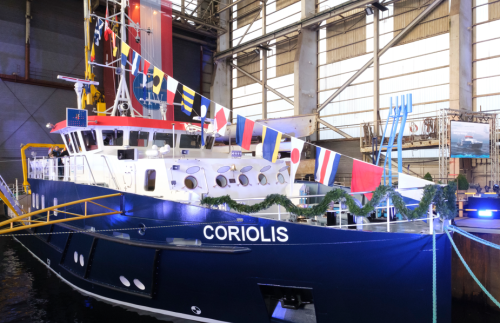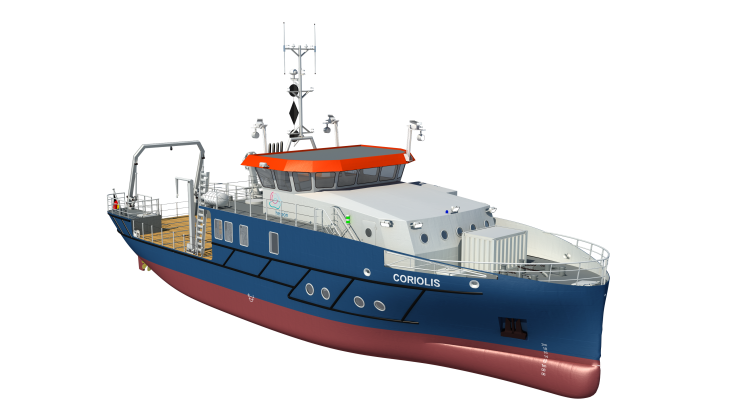Research vessel Coriolis - modern measurement platform and interdisciplinary research demonstrator

Fuel cell-powered innovative research vessel as a data source for digital twins in coastal, materials and membrane research
With the data obtained on board of the research vessel, Coriolis supports scientists in the development of transfer-relevant approaches and methods in the area of research into causes, effects and opportunities of reducing pollution, or the dynamics of nutrient production and carbon cycles in coastal and marine waters of the North and Baltic Seas.
The research vessel Coriolis was developed to be a state-of-the-art vessel that, above all, meets the requirements of the digitization of scientific data. The ship is primarily used as a mobile platform in coastal waters and estuaries. At the same time, the ship itself is a research object to explore hydrogen propulsion and the membrane technology used to reduce nitrogen oxide emissions from diesel generators in shipping. It thus supports decision-makers in the areas of politics, administration, business and the media in deriving action knowledge for the management of environmental change at the coast and in the sea and the use of new, emission-free drive concepts in shipping.

Model of the research vessel Coriolis
The main purpose is the collection and digitization and transmission of real time data relevant specifically for environmental chemistry, but also oceanography, morphology of coastal areas and meteorology. The use for testing emission-free ship drives and components such as modern, safe hydrogen storage, fuel cells, but also charge air treatment of the combustion air of the propulsion engines make the ship itself a research object and technology demonstrator.
Coriolis will make a significant contribution to generating data sets that will be created in collaboration with other institutes in the areas of coast and climate, and/or other Helmholtz centers in the research field Earth and Environmental Centers as well as other partners and will be technically implemented by the Helmholtz Coastal Data Center (HCDC). Ultimately, the data collected flow into the Coastal Pollution Toolbox (CPT) and will be, among other things, accessible to a wide range of stakeholders from the areas of politics, administration, business and the media.
